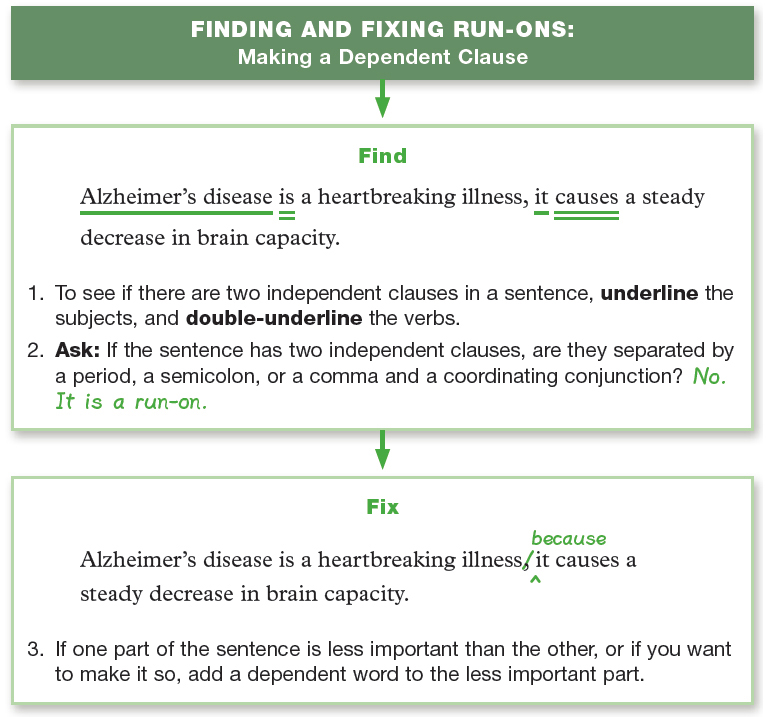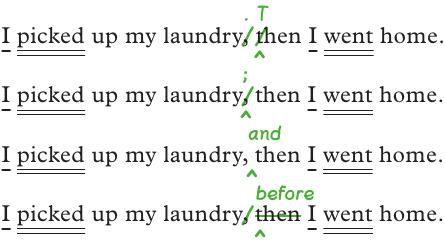3. Correct Run-On by Adding a Dependent Word
A third way to correct run-
NOTE: If the dependent clause following the independent clause shows a contrast, a comma is needed.
Many holidays have religious origins, though some celebrations have moved away from their religious roots.
DEPENDENT WORDS
| after | now that | what(ever) |
| although | once | when(ever) |
| as | since | where |
| because | so that | whether |
| before | that | which(ever) |
| even if / though | though | while |
| how | unless | who |
| if / if only | until |

You can also put the dependent clause first. When the dependent clause comes first, be sure to put a comma after it.


NOTE: You can use the word then to join two sentences, but if you add it without the correct punctuation or added words, your sentence will be a run-
| COMMA SPLICE | I picked up my laundry, then I went home. |
Correct errors caused by then just as you would correct any other run-
